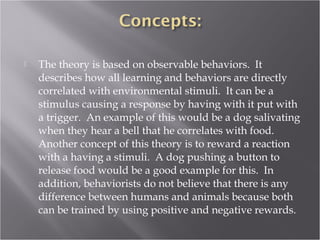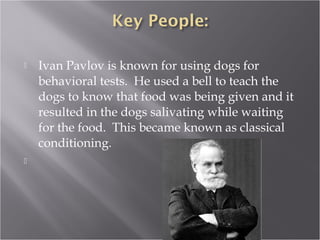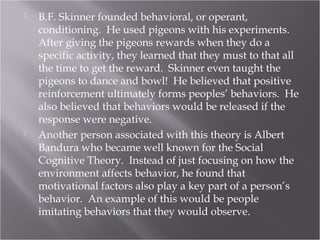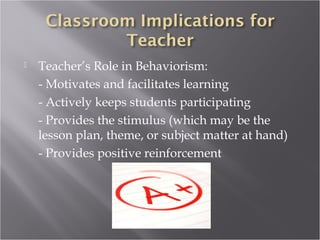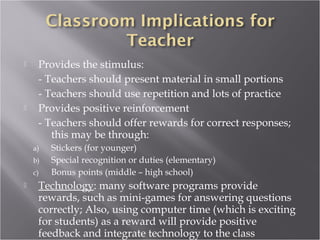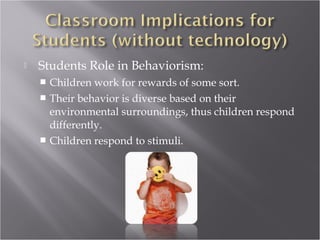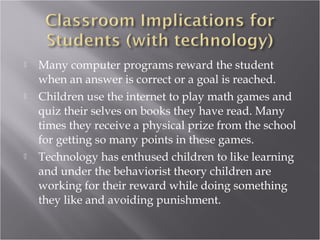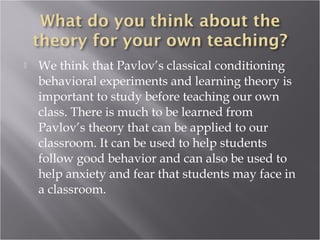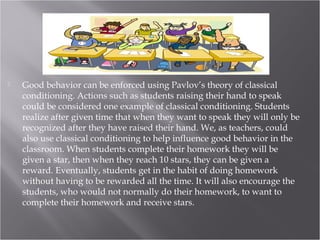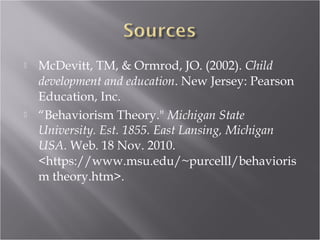Behaviorism is a learning theory based on observable behaviors and the relationship between environmental stimuli and responses. Key contributors include Ivan Pavlov, who studied classical conditioning in dogs, and B.F. Skinner, who developed operant conditioning using positive reinforcement with pigeons. In behaviorism, learning is shaped by consequences rather than internal mental states. The teacher's role is to provide stimuli and positive reinforcement to motivate learning, while students work for rewards and respond to environmental factors.

